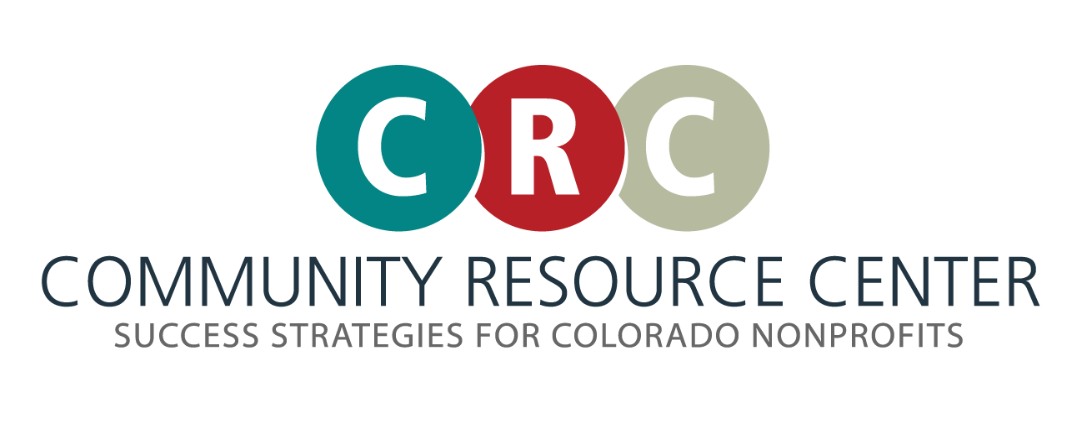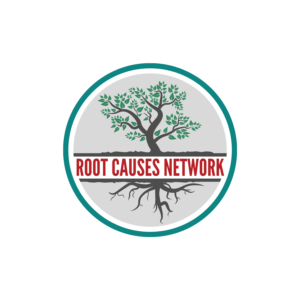The Root Causes Network
CRC has been supporting nonprofits to integrate voter engagement and community-centered policy for over 10 years. In partnership with direct service nonprofits and policy groups, CRC has created permanent infrastructure for year-round convenings and connection to local, state and national civic engagement resources. CRC actively provides nonprofits with ongoing training and relationship building with policy groups that are needed to move their advocacy work forward.
Direct service nonprofits and policy groups often work to address the same complex social challenges and ultimately serve many of the same communities. However, their work is often siloed; this divide can result in transactional relationships and policies that may not fully meet the needs of the community. By fostering civic engagement and voter participation, nonprofits help ensure community voices influence decisions made. Due to their nonpartisan nature and reputation as trusted messengers, nonprofits are uniquely positioned to reach unlikely voters. In a report by Nonprofit Vote in 2024, voters engaged by nonprofits saw a 10-percentage point boost in voter turnout compared to their counterparts in the same communities (Nonprofit Power Report).
Root Causes Network Info Flyer
Contact Monica DeWitt to learn more!
Informational Webinar
This webinar gives an overview of the Root Causes Network and how we work to build the advocacy capacity of our member nonprofits. We also cover program benefits, membership fees, and next steps to join the Network.
Program Overview
Communities gain a powerful voice in the policy decisions that affect them when the nonprofit sector is empowered and trained to fully exercise its political power and influence. The individual power of people combined with the collective power of the sector helps create healthy and just communities for all.
CRC is committed to building an inclusive Network which prioritizes organizations rooted within and serving communities of color and led by people of color, and strives to build a movement that is reflective of Colorado’s diversity. CRC is also committed to building a Network that is grounded in principles of social justice and believes in advancing systems-change using an equity lens. Now, more than ever, it is important for our networks to connect and activate in a spirit of allyship and mutual support.
Core Values
-
Connectedness
-
Equity
-
Integrity
-
Justice
-
Boldness
Goals
- Provide ongoing education and skills building to help direct service nonprofits increase their capacity to offer civic engagement and voter resources to their communities.
- Facilitate relationship building between nonprofits and policy/organizing groups to increase the influence of direct service nonprofits in the policy field.
Membership Benefits
- Bi-monthly Network meetings that bring together direct-service and policy groups.
- Chance to engage with fellow direct services nonprofits who are committed to civic engagement.
- Opportunities to build relationships with those in the policy field.
- Customizable Resource Library of templates and materials and tailored coaching to support civic engagement efforts for network members.
- Access to tools, trainings, and one-on-one support to offer voter engagement activities.
- Discount for the Colorado Grants Guide® with over 1200 funder and grant profiles.
- Discounts for CRC state-wide and advocacy trainings, including Virtual Funder Round Tables and new Civic Engagement Skills Track.
2026 Meeting Dates
February 18
April 15
June 17
August 19
Oct 21
December 2
Membership Expectations
Social Justice: The Network is committed to promoting social justice and interested in helping member organizations move policies forward that reduce poverty and promote equity among disenfranchised groups.
Client Engagement: Members of the Network are committed to authentic constituent engagement in their ongoing advocacy efforts.
Participation: Member organizations must commit to attending 75% of Network meetings.
Nonpartisanship: All Network activities are nonpartisan. Your organization commits to following the spirit as well as the letter of IRS law that covers 501(c)(3) activities.
Payment: There is an annual membership fee, assessed on a sliding-scale based on organizational budget size.
Facilitators
Monica DeWitt (she/her/hers)
Education Specialist
Monica brings over a decade of experience managing projects in the nonprofit and public education sectors. As Education Specialist, she believes educating nonprofits on civic engagement has never been more important. She prioritizes data-driven decision making and cultivating meaningful partnerships to meet collective goals. She is returning to CRC after working on the Colorado Healthcare Corps pilot project where she recruited and coached AmeriCorps members to build capacity in healthcare.
Monica lives in Lafayette and enjoys reading and yoga. She is currently learning how to make sourdough bread and garden. She spends sunny weekends with her partner, daughter and dog hiking and camping in the mountains.
Alexandra Cruz (she/her/ella)
Program Coordinator
Alexandra started at CRC as a Lead Community Outreach Organizer for the Civic Engagement team, worked as the Civic Engagement Assistant Program Manager and now serves as Program Coordinator across all CRC programs. She graduated from MSU Denver with a major in business administration and minor in Italian and has been involved with nonprofit organizations since she was in high school. Due to this, she was able to experience the positive impact non-profits had in her family, future, and community. In 2009, she migrated with her family to the US from Guadalajara, Jalisco, and feels lucky she ended up in beautiful Colorado.
Alexandra enjoys sharing resources with the community and talking to community members. She’s excited to continue to work at CRC and its partner organizations. In her free time, she enjoys spending time being active, either taking a gym class (dance or yoga) or taking a walk with her husband and their dog Luna. She also loves hot springs, watching shows and movies, and traveling.
Alex McHenry (she/her/ella)
Director of Programs & Development
Alex joined Community Resource Center (CRC) in 2020, bringing over twelve years of experience in education, leadership, and community engagement. As a leader, Alex stives to create teams that are transparent, community-driven and collaborative. A natural and authentic relationship builder, Alex has spent her career in the nonprofit sector connecting people and galvanizing groups to work together for community growth. As the Director of Programs, Alex provides strategic oversight to CRC’s core program areas including Grant Services, Rural Action Network, and Civic Engagement and Advocacy. Born and raised in Denver, Alex’s passion for community engagement has also been shaped by her time living in Kenya and Malaysia. Alex has a masters’ degree in Conservation Leadership, is a graduate of the Family Leadership Training Institute (FLTI) and is passionate about working at a systems level to tackle complex social issues. In her free time Alex enjoys all outdoor activities and spending time with her family.


